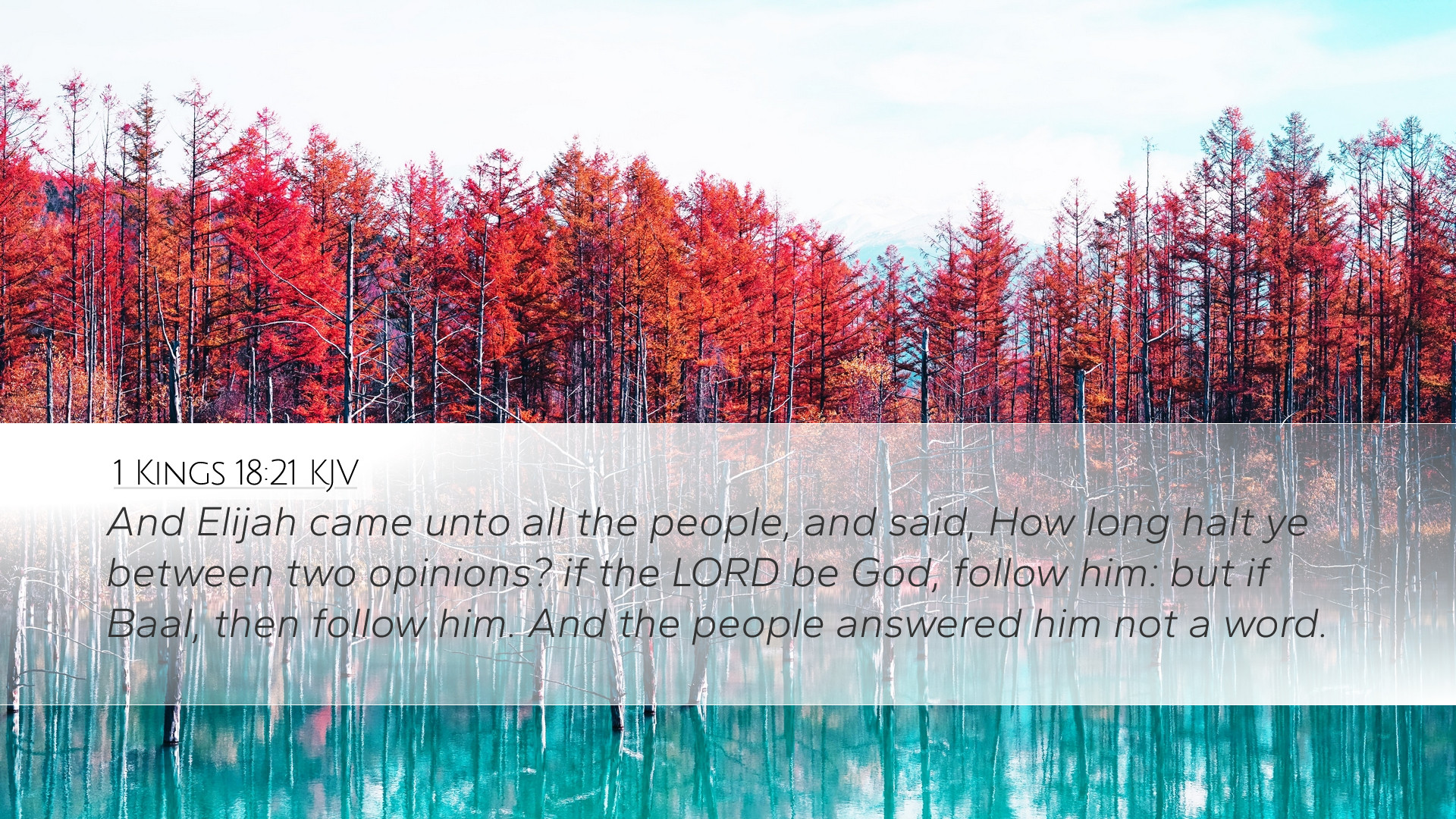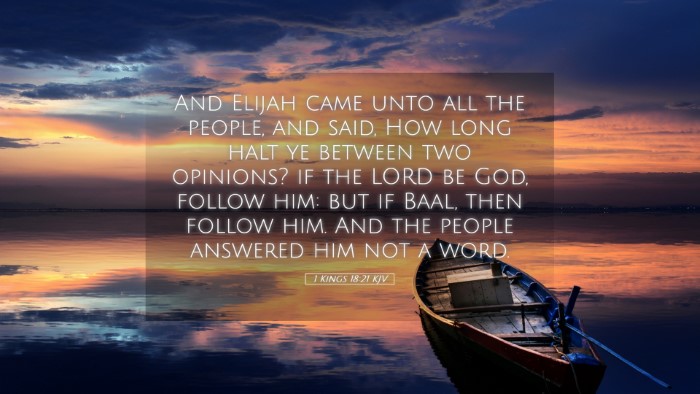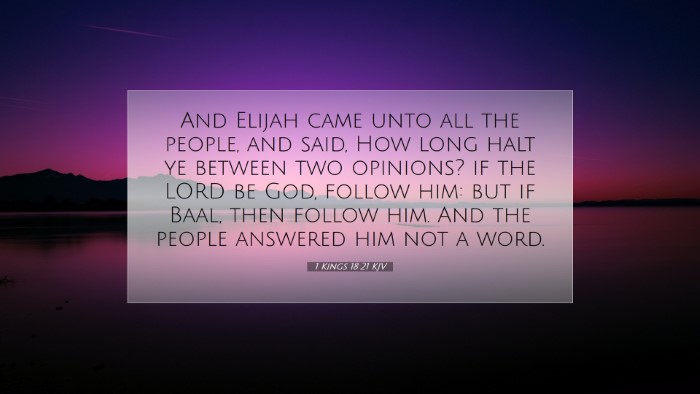Commentary on 1 Kings 18:21
Bible Verse: 1 Kings 18:21 - "And Elijah came to all the people, and said, How long halt ye between two opinions? if the Lord be God, follow him: but if Baal, then follow him. And the people answered him not a word."
Introduction
This pivotal verse takes place during a critical moment in Israel's history, highlighting the spiritual crisis faced by the Israelites. The prophet Elijah stands as a beacon of truth amidst a nation plagued by idolatry, specifically the worship of Baal. The tension set in this passage serves to illustrate the conflict between fidelity to Yahweh and the seductive allure of foreign gods.
Contextual Analysis
The events leading to Elijah's declaration are steeped in historical context. Israel, under King Ahab's rule, had turned from Yahweh to worship Baal, encouraged by his wife, Jezebel. This apostasy was marked by significant social and religious upheaval, and Elijah's confrontation serves not only as a challenge to the people but as an ultimatum about true faith.
Matthew Henry's Insights
Matthew Henry emphasizes the gravity of Elijah's question. He observes how the people of Israel stood "halt" between two opinions, exemplifying a dual allegiance that is ultimately disastrous. He notes:
- Indecision Is Destructive: Henry remarks that a divided heart leads to a divided life. The charge from Elijah reveals that neutrality in faith is not an option when it comes to worshiping God.
- A Call to Decision: The urgency of Elijah’s proclamation illustrates that followers of God must act decisively. Indecision leads to spiritual paralysis; thus, the prophet's question penetrates the people's hearts, urging them towards commitment.
Albert Barnes' Commentary
Albert Barnes provides a detailed examination of the text, commenting on the rhetorical strength of Elijah’s message. He highlights several dimensions:
- The Nature of Doubt: Barnes points out that the phrase "halt ye between two opinions" suggests a state of instability and doubt. This does not reflect mere indecision but a deeper existential crisis concerning loyalty and discipline in worship.
- The Invitation for Truth: He notes that the question posed by Elijah invites the people to consider the evidence for each side. Barnes stresses that true faith requires examination and ultimately a choice.
Adam Clarke's Observations
Adam Clarke's commentary sheds light on cultural implications and the broader spiritual truths embedded in this verse:
- Cultural Corruption: Clarke connects the people's indecision to the influence of surrounding cultures and religions. Their engagement with Baal worship points to a broader societal decline in spiritual integrity.
- The Challenge of Idolatry: He reinforces that Elijah’s challenge is not simply against Baal but against the very nature of idolatry, addressing the temptation to blend faith in God with the practices of the world.
Theological Implications
This verse serves as a crucial theological junction, emphasizing essential themes pertinent to Christian doctrine:
- The God-Sized Question: Elijah’s call to the people is a reflection of God’s desire for a relationship founded on truth and allegiance. The question, "How long?", also references the patience of God and the longing for His people to return to Him.
- Faith Requires Action: The transition from contemplation to action is pivotal in faith. The people’s silence in response suggests an unhealthy level of complacency in their spiritual walk.
Application for Today
In the modern context, Elijah’s challenge resonates deeply with Christians who navigate a world rife with conflicting beliefs and values:
- Decisive Faith: The modern believer is called to examine areas of "halting" in their own lives, where cultural pressures might detract from their commitment to Christ.
- Community Responsibility: Elijah’s challenge was not just for individuals but for the collective nation of Israel. Pastors and church leaders must cultivate communities that confront spiritual apathy and encourage decisive faithfulness to God.
- Embracing Truth: In an age of relativism, the necessity of truth becomes paramount. The challenge remains to discern God’s voice amidst the clamor of secular ideologies.
Conclusion
1 Kings 18:21 stands as a timeless reminder of the necessity for faithful commitment in the face of uncertainty and temptation. The insights from Matthew Henry, Albert Barnes, and Adam Clarke illuminate the spiritual dynamics at play and provide a challenge that transcends generations. As the church continues to grapple with modern idols and the call for authenticity, the message of Elijah remains relevant: we must choose whom we will serve.


